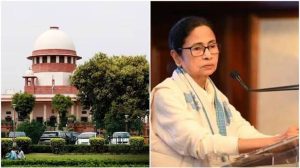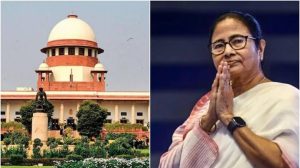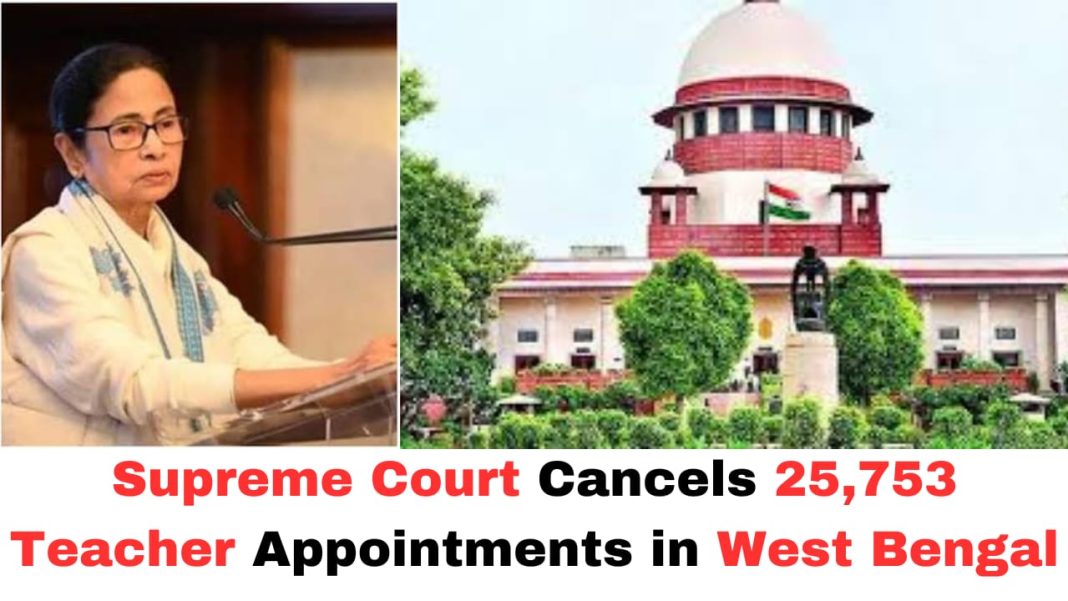Digital News Guru West Bengal Desk:
In one of the most significant education-related judgments in recent times, the Supreme Court of India has upheld the Calcutta High Court’s 2023 ruling that cancelled the appointments of 25,753 teachers and non-teaching staff in government-aided schools across West Bengal. The apex court’s verdict, delivered on April 3, 2025, marks the culmination of years of legal battles and public outrage over a recruitment scam that shook the state’s education system and political structure.
What Triggered the Controversy?
The roots of this case lie in the 2016 recruitment drive conducted by the West Bengal School Service Commission (WBSSC), which was meant to fill thousands of vacancies for teachers and support staff in the state’s government-aided schools. Soon after the recruitment process concluded, allegations of widespread irregularities, merit list manipulation, and bribery surfaced.

Multiple complaints and petitions alleged that:
- OMR sheets were tampered with
- Unqualified candidates were awarded jobs
- Merit lists were changed post-publication
- Selection was influenced by political connections and financial inducements
What followed was a wave of protests and legal scrutiny that would ultimately expose what the courts would later term an “institutionalized fraud.”
Supreme Court’s Observations and Verdict
Delivering its verdict, a Supreme Court bench comprising Justice Sanjiv Khanna and Justice Sanjay Kumar observed that the selection process had been “vitiated and tainted beyond resolution.” The court agreed with the Calcutta High Court’s conclusion that the entire process was “fraudulent” and no partial remedy—like reviewing individual appointments—could cleanse the damage.
Key Highlights of the Verdict:
- All 25,753 appointments stand cancelled.
- Fresh recruitment must be initiated within three months under a fair, transparent, and supervised system.
- Employees not involved in the fraud will not have to return their salaries, acknowledging that many were unaware of the manipulation.
- Future recruitments must include safeguards, such as improved digital tracking, transparency in merit list publication, and third-party audits.
The court stated that public trust had been compromised and restoring it required strong judicial intervention, even at the cost of job loss for thousands.

Human Impact: Teachers in Limbo
For the thousands of individuals who had been working as teachers and staff for nearly eight years, the verdict has been devastating. Many of them assert that they were selected purely on merit and were unaware of any wrongdoing in the process. Now, despite years of service and experience, they are without jobs, pensions, or job security.
Political Fallout
The verdict has created a political firestorm in West Bengal:
- The TMC government has come under fire for failing to protect the integrity of one of the most crucial sectors—education.
Meanwhile, the state government, while acknowledging the court’s ruling, has expressed concern about the livelihood of the affected individuals and assured compliance with the court’s order to initiate a fresh selection process.
Looking Ahead: Rebuilding Trust
This verdict could serve as a turning point in Indian governance. It sends a strong message about the consequences of systemic corruption, especially in areas like education where merit and fairness are essential.
Recommendations and Takeaways:
- Transparent digital platforms for recruitment should be made mandatory.
- Independent monitoring committees should oversee government recruitment drives.
- Grievance redressal systems must be in place for candidates to raise concerns during the recruitment process.
- Accountability for senior officials is essential to prevent recurrence.
Lessons and the Way Forward
The Supreme Court’s decision is a strong reminder that public institutions must uphold the highest standards of integrity, especially when it concerns youth employment and education. It underscores the importance of independent oversight, digital transparency, and whistleblower protection mechanisms.

For West Bengal, the road ahead will be challenging. Rebuilding the recruitment process from the ground up while addressing the human cost of this verdict — both for those wrongfully terminated and those deprived of rightful jobs — will require political will and administrative diligence.
Conclusion
The cancellation of over 25,000 teaching and non-teaching appointments in West Bengal by the Supreme Court is more than just a legal decision—it’s a wake-up call. It highlights the vital need for clean governance, especially in sectors that shape future generations. While the ruling leaves many individuals temporarily displaced, it also paves the way for a more honest, accountable, and transparent recruitment system that ensures such injustices are never repeated.
As West Bengal prepares to rebuild its educational workforce, all eyes will be on how the government handles this second chance—to do things right.
You May Also Read: Indian Lenders Propose Changes to RBI’s Liquidity Management








